SBBT: Meet Rebecca Stead

When I read and reviewed Rebecca Stead’s novel When You Reach Me back in April I knew I had something pretty amazing on my hands. The kind of book that can remain in public memory long after its creators and initial readers are gone. A scintillating, fascinating, amazing novel, the book is Rebecca’s second, following the lovely (if unrelated) First Light of 2007. So with the SBBT coming up, there was one lady I particularly wanted to ask a question or two. Meet Rebecca Stead, and remember her name. If I don’t miss my guess, you’re going to be hearing a lot more of about her in the coming years.
Fuse #8: This is pretty basic stuff when you get right down to it, but where did you get the idea for this book? Did different elements come to you in pieces or did you have it all down pat in your head from day one?
Rebecca Stead: The “big idea” behind the book was sparked by a newspaper article about a man who walked up to a policeman and said that he had no idea who he was or why he was there. All he could remember was that his wife, Penny, and their two daughters had been in a terrible accident and needed help. But the police could find no evidence of any kind of accident. They circulated his photo around the country and eventually he was claimed by Penny, who did exist, who was in perfect health, but who was his fiancée, not his wife. No kids, no accident. I thought to myself, what if he knows something we don’t? That’s the kind of thing that gives me chills.
ADVERTISEMENT
ADVERTISEMENT
Then there’s the book’s setting, which is pretty much the world of my childhood. It’s my building, my school, and lots of my own thoughts as I remember them. My mother was a contestant on the $20,000 Pyramid. In sixth grade, my friends and I had lunch-period jobs at a sandwich place on Broadway. There was a guy on my corner who terrified me sometimes. All of that was in my head, and I wanted to write about it.
But it didn’t come together all at once. I knew the kind of story I wanted to tell, but had a few different theories about who was leaving the notes for Miranda and how it would all come together at the end. The pieces eventually clicked, but I earned maybe one “click” a month. There was no magical “click-click-click-click.”
Fuse #8: In the book Miranda’s the kind of kid who prefers to read and reread A Wrinkle in Time rather than try a book with a "spunky" gal on the cover. First off, were you that kind of kid when you were younger? I only ask since you’ve found a continuity flaw in the book and that would require some serious reading and rereading on your part. Also, do you happen to know what the "spunky" girl books are that Miranda rejects? They’re never named in the book but I’d love to know.
RS: I was the kind of kid who read anything with a story. I fell in love with A Wrinkle in Time. But I also read lots and lots of other books. I think the “spunky-girl” books I had in mind are along the lines of Norma Klein’s “Mom, the Wolf Man and Me,” and Louise Fitzhugh’s “Harriet the Spy.” I read and really liked those kinds of contemporary stories. But I didn’t fall in love with them in the same way I did with L’Engle’s books.
I never noticed the continuity issue in “A Wrinkle in Time” when I was a kid, though I read the book over and over. In fact, I didn’t see it until I read the story specifically with Marcus’ character in mind. I didn’t look for “faults” in books when I was young – books were like houses I wanted to live in, and I didn’t want to see cracks in the walls. I don’t think Marcus really wants to see the cracks either. But he can’t help it.
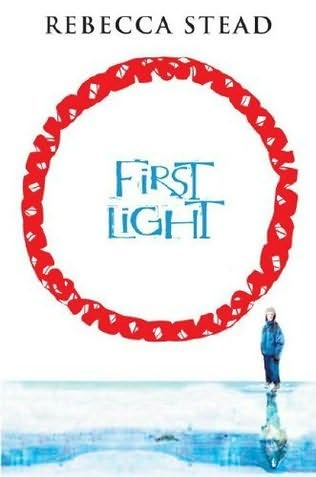 Fuse #8: Between this novel and First Light you tend to create works of science fiction with a strong basis in reality. The kinds of books that a kid who only liked realistic fiction would enjoy, as well as the science fiction or fantasy minded child reader. Would you agree? For that matter, who are your literary influences?
Fuse #8: Between this novel and First Light you tend to create works of science fiction with a strong basis in reality. The kinds of books that a kid who only liked realistic fiction would enjoy, as well as the science fiction or fantasy minded child reader. Would you agree? For that matter, who are your literary influences?
RS: I don’t write with any particular kind of kid in mind. In fact, I don’t write with kids in mind at all, although I do imagine as I’m writing that my reader is rooting for the story to work, as I think most kids do. Without that imaginary support, I think my inner critic would make it very hard to write at all. I do like “real-world” stories that flower into something else, something unexpected and thrilling. I like to think of them as optimistic. Optimism doesn’t come easily to me, but it’s a quality I strive for.
As a kid, I loved Judy Blume, Paula Danziger, Robert Heinlein, Anne McCaffrey, Norma Klein, Ray Bradbury, Sydney Taylor, E.L. Konigsberg, and, of course, Madeleine L’Engle. There’s a book called “Fog Magic” by Julia L. Sauer that I loved very much, about a girl in Nova Scotia who discovers a village that appears only on foggy days. For a long time, I thought this was a secret book that only I knew about, but, as it turns out, it won a Newbery Honor in 1944.
As an adult, I’ve discovered new loves and influences, including Geraldine McCaughrean, Peter Dickinson, Nancy Farmer, Laurie Halse Anderson, Margo Lanagan, M.T. Anderson and Neil Gaiman (also George Saunders, Alice Munroe, and William Maxwell). And many more!
Fuse #8: When You Reach Me feels like nothing so much as a stand alone book without any need of a sequel. First Light, on the other hand, seems like it could continue. Have you ever felt inclined to go back into that world?
RS: I never planned a sequel when I was writing First Light, though I’ve had some ideas since then. Actually, “some” is an exaggeration; I have a very dramatic opening scene, and a general idea of one character’s motivation. Not enough for a book.
Fuse #8: Was the continuity hard to keep track of in When You Reach Me? I know that you’re dealing with jumping back and forth in time in terms of your narrative, but you also have to be careful with making sure that one event doesn’t precede another in an illogical way. Did this all come out smoothly or were there some rough patches in the editing process?
 RS: It was pretty smooth. There was one big bump, really. My editor, Wendy Lamb, and I were trying to find new readers for every draft of the book because, having read a couple of drafts, and, of course, knowing the ending, we felt as if we couldn’t accurately measure its impact anymore.
RS: It was pretty smooth. There was one big bump, really. My editor, Wendy Lamb, and I were trying to find new readers for every draft of the book because, having read a couple of drafts, and, of course, knowing the ending, we felt as if we couldn’t accurately measure its impact anymore.
ADVERTISEMENT
ADVERTISEMENT
And so these questions were trickling in: How could Miranda have known X? But if that’s what happened, then wouldn’t Z logically follow? Why did Q? What happened to F?
And one day I just lost my sense of the book’s internal logic. I had this sudden horrible certainty that the whole thing could never stand up. I remember being in my bedroom and experiencing a wave of nausea. And I called my dad, who is the person who introduced me to science fiction when I was a kid, and watched lots of Star Trek with me, and who has this great way of enjoying speculative fiction and taking it very seriously at the same time.
I asked him to meet me. In an hour, if possible. I hadn’t told him anything at all about the book yet, so we sat in a restaurant and ordered breakfast and I laid out the whole story, all the pieces. And when I got to the end he was making this very weird scrunched-up face. I said, “What’s wrong?” And he said, “Nothing’s wrong. I’m trying not to cry.”
When he said that, I thought, okay, I have to make this story hold together somehow. So we just sat there and talked until I had a handle on it again. And when I got that back, I knew immediately which parts of the book didn’t fit, and how to answer all the questions I’d gotten from our readers. And continuity was never a problem after that.
Fuse #8: Are you tempted to write in any other fiction genres?
RS: All the time. I have one and a half picture-book drafts, a few adult short stories, a bunch of screenplay notes that I worked on with a friend before we hit a wall and gave up, and the beginning of an adult novel. I once took extensive notes for a monologue I wanted to write called “Rage against [insert name of your phone company here].” And just the other day on the subway I tried to talk my husband into writing a play with me, about one particular stressful day we spent together in New Jersey during the winter of 2005. But he wouldn’t go for it.
Filed under: Uncategorized
About Betsy Bird
Betsy Bird is currently the Collection Development Manager of the Evanston Public Library system and a former Materials Specialist for New York Public Library. She has served on Newbery, written for Horn Book, and has done other lovely little things that she'd love to tell you about but that she's sure you'd find more interesting to hear of in person. Her opinions are her own and do not reflect those of EPL, SLJ, or any of the other acronyms you might be able to name. Follow her on Twitter: @fuseeight.
ADVERTISEMENT
ADVERTISEMENT
SLJ Blog Network
One Star Review, Guess Who? (#202)
Exclusive: Giant Magical Otters Invade New Hex Vet Graphic Novel | News
Parsing Religion in Public Schools
Take Five: LGBTQIA+ Middle Grade Novels
ADVERTISEMENT



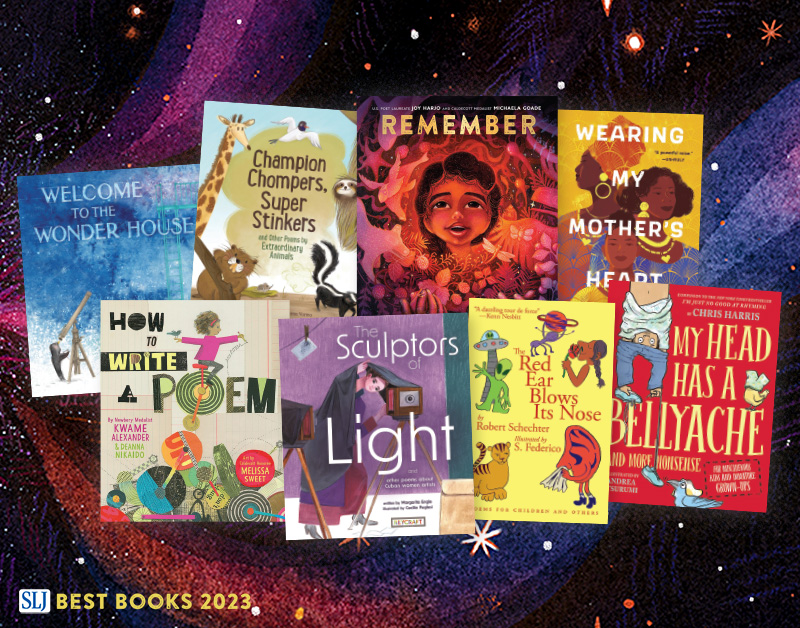
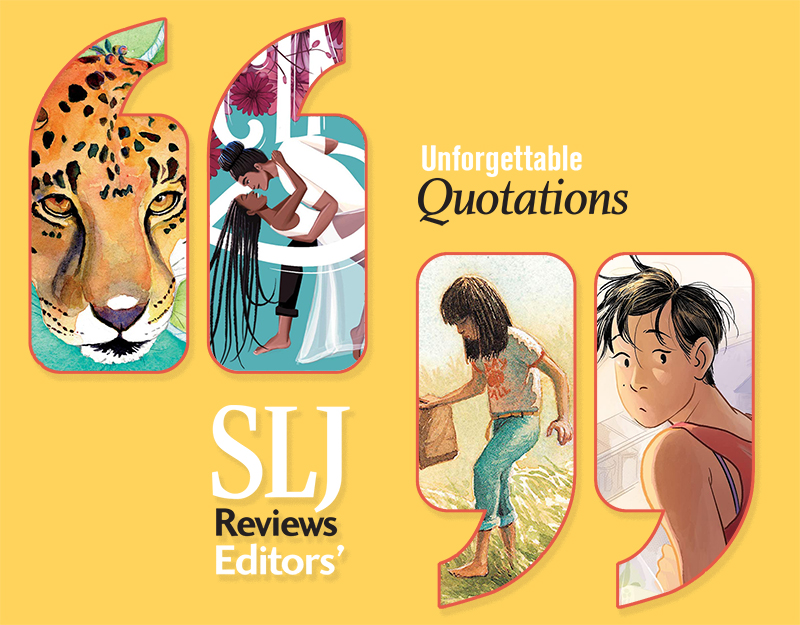
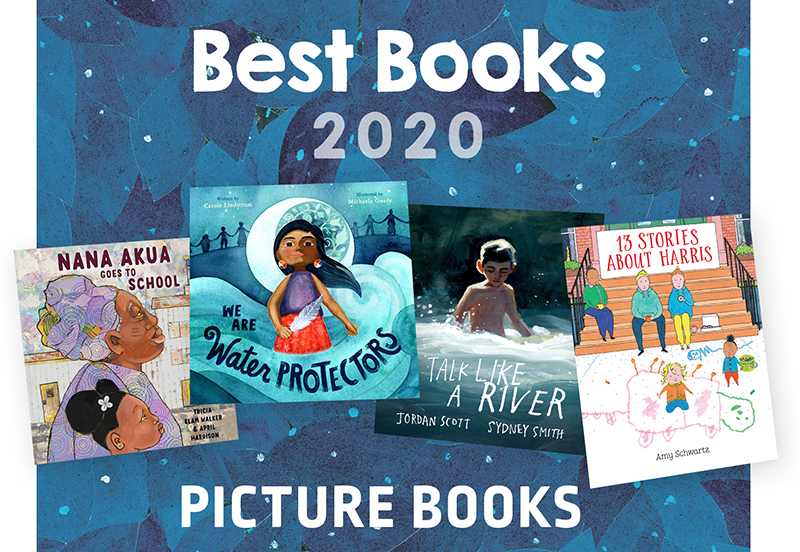
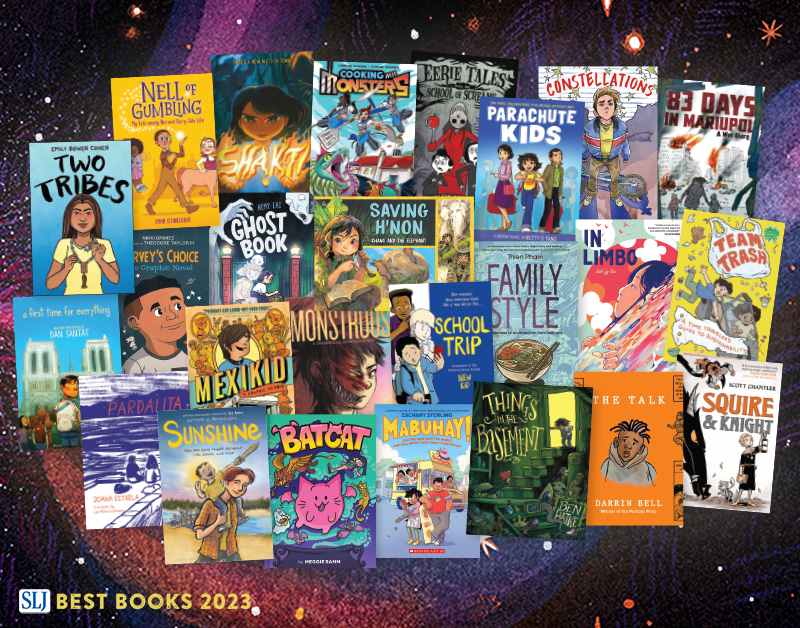
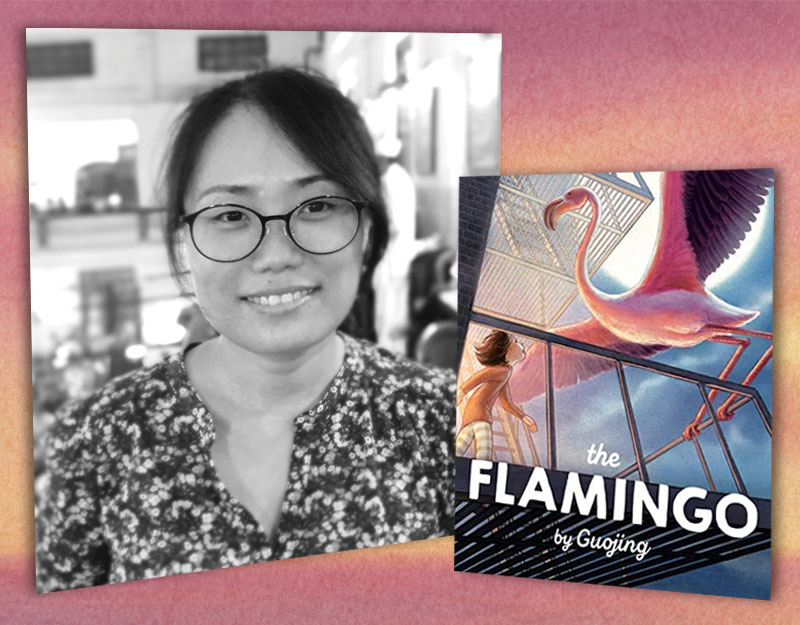
“…you tend to create works of science fiction with a strong basis in reality. The kinds of books that a kid who only liked realistic fiction would enjoy…”
That’s me. And I really enjoyed First Light! Looking forward to When You Reach Me.
I wonder if Rebecca would mind if we all borrowed her Dad?
Awesome guy. Can’t wait to read her books.
I am a huge fan, too! I reviewed it a while back and just fell in love with the writing
(libraryvoice.wordpress.com/2008/12/31/book-review-when-you-reach-me-by-rebecca-stead/) Awesome interview!
When you reviewed this new book by Rebecca on April 30 I thought the July 14 date sounded like a century away as I was so eager to get my hands on the book (I sound like a child!); thank you for this wonderful Friday morning visit with Rebecca to help me pass the days until July 14 which does seem much, much closer now.
I LOVE Rebecca Stead! I am anxiously awaiting this book!
I LOVE when you reach me. I borrowed it from a library today and finished it in a couple of hours, I couldn’t put it down because it makes me want to see what happens at the end…I didn’t even go to dinner when mum told me to (I got in big trouble) but I really enjoyed it its my favourite book.
Dear Rebecca: thank you so much for coming to England again (you decided to come even though you didn’t know then that you would win the Guardian fiction prize). I can’t wait to read your next book but in the meantime I’ll read the first! Klaus, with great admiration!